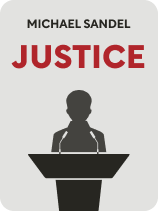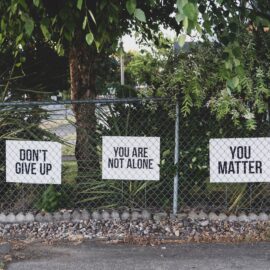

This article is an excerpt from the Shortform book guide to "Justice" by Michael Sandel. Shortform has the world's best summaries and analyses of books you should be reading.
Like this article? Sign up for a free trial here.
What is libertarianism in philosophy? Is there a safe limit to how much freedom individuals may have?
Libertarianism states that the goal of the state is to maximize personal freedom. This goal comes from the libertarian belief that people own themselves. That said, libertarians do recognize that it’s the government’s role to prevent people from limiting the freedom of others.
Keep reading to learn about the key tenets of libertarian philosophy.
What Is Libertarianism?
In political philosophy, libertarianism emphasizes freedom above all else. Specifically, libertarians argue for two kinds of freedom:
- Personal freedom: People have the freedom to direct and impact their own lives however they see fit. This is essentially the same as being free to use your property however you like—since you own yourself, you can “use” yourself to live however you like.
- Economic freedom: People own their labor and whatever it creates. For example, if you own a lemon tree, you also own the lemons that it grows. Similarly, since you own yourself, you also own whatever you do and create.
(Shortform note: For many libertarians, personhood and economic structures are inseparable. To understand what this means, let’s look at the common libertarian claim that “corporations are people.” Many libertarians interpret all rights as derivative of property rights—even our personal freedoms stem from the idea that an individual has a right to own themselves as property. Therefore, since corporations are also collections of property (money, land, businesses, and so on), libertarians believe that these organizations have the right to act as they please, just like an individual—and that limiting their ability to do so is infringing on people’s property rights and therefore their freedoms.)
Sandel further outlines these two forms of freedom, as well as how they influence political questions:
Personal Freedom
Sandel explains that to protect personal freedom, libertarians oppose two main kinds of laws:
1) Safety laws: Since everyone owns themselves, they have a right to take personal risks if they so choose. Libertarians argue that safety laws limit this freedom and are therefore unethical. Examples of these laws include the criminalization of potentially dangerous substances like heroin as well as more mundane rules like speed limits.
2) Moral laws: Since everyone owns themselves, they have a right to live according to their own moral code. Therefore, libertarians believe that laws enforcing one specific moral code are unethical. For example, libertarians object to laws against homosexuality or abortion—they believe people have a right to anti-gay or anti-abortion moral beliefs, but that it’s unethical to limit the freedom of those who hold different views.
Economic Freedom
Sandel says that to preserve personal ownership of labor and whatever it creates, libertarians also oppose most economic regulation. In particular, they argue against wealth redistribution—anything from higher taxes on the rich to a government-mandated minimum wage. Libertarians argue that wealth redistribution is essentially theft: the government forcibly taking money that people have a right to. Some even argue that wealth redistribution is the same as forced labor, since it involves the government forcefully taking the result of someone’s labor.

———End of Preview———
Like what you just read? Read the rest of the world's best book summary and analysis of Michael Sandel's "Justice" at Shortform.
Here's what you'll find in our full Justice summary:
- A philosophical look at the goal of our society and its laws
- What a moral and just government and society look like
- Sandel's suggestions for how to create a more moral world






